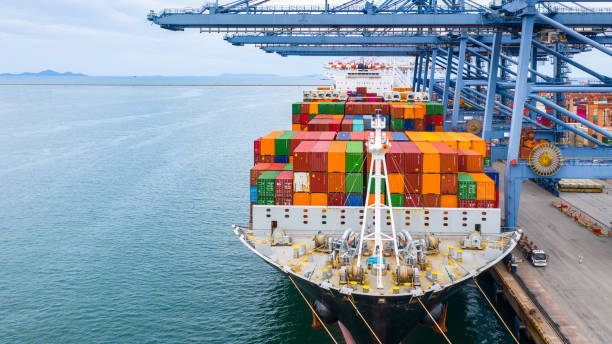
Red Sea shipping attacks prompt Africa price concerns
The disruption to global supply chains from Houthi attacks on Red Sea shipping could drive up inflation and raise the prices of essential commodities such as oil and gas, posing problems for import-heavy African countries with a large trade deficit, such as Egypt, and others who are already struggling with rising prices, including Ghana, Ethiopia, and Nigeria.
In October, the Yemen-based Houthis declared support for Hamas in its war against Israel and, since November, have launched dozens of attacks on commercial shipping in the Red Sea. The group claims to be attacking ships linked to Israel but has in fact targeted many other vessels with no link to the Middle Eastern country.
The attacks have prompted many of the world’s largest freight companies – such as MSC, Hapag-Lloyd, and Maersk – to avoid passing through the Red Sea and Suez Canal, prompting them to reroute their ships around the Cape of Good Hope.
For ships travelling from Asia to Europe or North America, this diversion adds around 6,000 nautical miles to the journey and can delay delivery times by up to a month.
Arne Lohmann Rasmussen, Copenhagen-based chief analyst and head of research at Global Risk Management, which works with clients to mitigate energy price risks, said that the situation is being watched closely.
He is optimistic that supply chains will not be affected as badly as in 2021, when the Ever Given ship ran aground in the Suez Canal and blocked the trade route for six days, but is concerned that higher freight costs will feed into higher prices for goods and commodities in Africa and elsewhere.
“The big question is if this will disrupt global supply chains as in 2021 when the Ever Given was stuck,” he says. “However, in 2021 the market for freight was extremely tight as everybody was buying goods instead of services during the pandemic. This is not the case today – there is spare freight and container capacity. That said, we are still seeing higher freight costs.”
Countries in North Africa are likely to be hit hardest by the Red Sea attacks given their geographic proximity, with global investors having expressed concerns that the tensions could spill over into a broader regional conflict.
With cargo being rerouted away from the Red Sea and Suez Canal, Egypt is set to miss out on a chunk of the transit fees which contribute just under $750m a month to its economy and are a crucial source of foreign exchange.
This could land a further blow to an economy which continues to battle against elevated levels of inflation, high debt levels, a significant current account deficit, and a weak currency.
Still, with trade being rerouted around Africa’s southern tip, Rasmussen says there may be some temporary opportunities for African markets.
“We are in the bunker business, and we are seeing higher demand from some of our African operations from the vessels going south of Africa,” he says.
“One could also say from an economic point of view that African producers have become more competitive compared to Asian producers, given the cost of transporting cargo from Asia to Europe is going up.”


